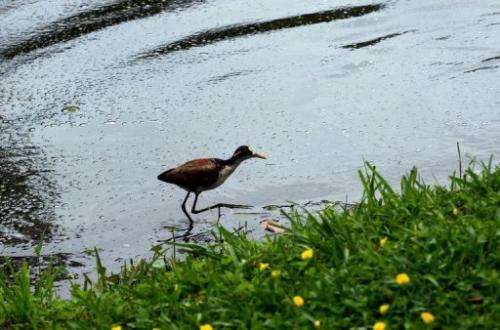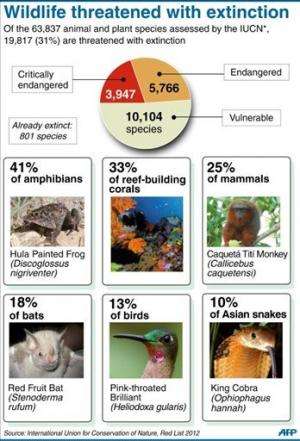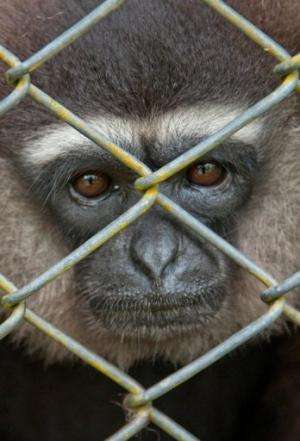World pledges more money to protect biodiversity

Efforts to stem the worrying loss of Earth's dwindling natural resources received a boost Saturday when a UN conference in India agreed to double biodiversity aid to poor countries.
But in a week that saw 400 plants and animals added to a "Red List" at risk of extinction, some observers said this was not enough to reverse the decline in species and habitats that humans depend on for food, shelter and livelihoods.
A quarter of the world's mammals, 13 percent of birds, 41 percent of amphibians and 33 percent of reef-building corals are now at risk of extinction, according to the International Union for Conservation of Nature.
"Efforts to conserve nature must be urgently scaled up if we want to meet the 2020 deadline to save all life on Earth," it said of the deal.
Governments reached an early-morning agreement after long nights of tough bargaining in Hyderabad, south India, to double biodiversity-related funding to developing countries by 2015 and maintain the rate until 2020.
This was from a baseline of average annual aid in the period 2006-2010, said a document issued at the close of the Convention on Biological Diversity (CBD) meeting.
No figures were mentioned, but there was consensus among observer groups that a doubling of government biodiversity aid from developed countries to poor ones should yield an annual figure of about $10 billion (8 billion euros).
It was also agreed that at least 75 percent of recipient countries must report on their spending by 2015 and draw up national biodiversity plans.
UN countries decided at the last CBD conference in Nagoya, Japan, two years ago to an ambitious 20-point plan to turn back the tide of biodiversity depletion by 2020.
The so-called Aichi Biodiversity Targets include halving the rate of habitat loss, expanding water and land areas under conservation, preventing the extinction of species on the threatened list, and restoring at least 15 percent of degraded ecosystems.

Green group WWF said about $200 billion must be invested in biodiversity every year if the targets are to be met.
"What's been agreed in Hyderabad represents less than half this number," it said in a statement and called the deal "disappointing".
Conservation International, too, said much more must be done.
"We do have concerns about what the investment levels will actually be and whether or not they will be sufficient," said the group's biodiversity director Lina Barrera.
In crunch talks that once again saw battle lines drawn between developing and affluent states, negotiators in Hyderabad clashed over the extent and timing of additional aid.
Canada objected to the deal, but did not block its adoption, complaining that many recipient countries had failed to meet a target for reporting on their biodiversity spending and needs.

Francisco Gaetani, chief negotiator for Brazil—a country which other delegates accused of taking a tough stance on behalf of the developing world—said the deal "could be more ambitious", but the country was "satisfied".
CBD member countries lamented at the close of the talks that "the lack of sufficient financial resources" was hampering progress.
And they called on one another in a joint statement "to consider all possible sources and means that can help to meet the level of resources needed".
The global economic troubles have left governments less keen to divert money to conservation, especially in developing countries battling inflation, poverty and unemployment.
"In the context of the financial crisis, this is a good deal," French Environment Minister Delphine Batho told AFP.
And European commissioner for the environment Janez Potocnik said it was "an essential contribution".
The conference awarded the next CBD meeting in 2014 to South Korea.
It also identified more than 50 zones that need protection on the high seas, where no national laws apply and international rules are often vague, leaving them vulnerable to damaging fishing and oil prospecting practices.
The CBD, to which 193 countries are signatories, marks its 20th anniversary this year.
It has already missed one key deadline when it failed to meet the target set to arrest biodiversity loss by 2010.
(c) 2012 AFP
















